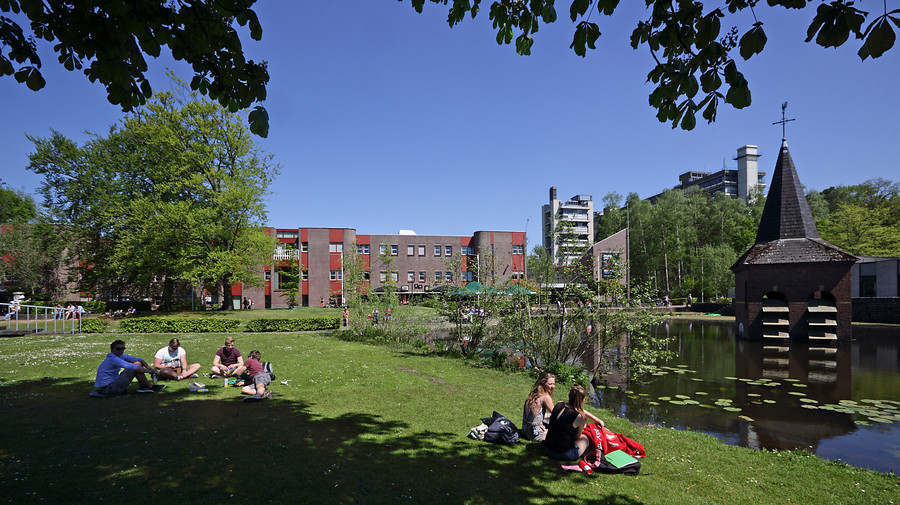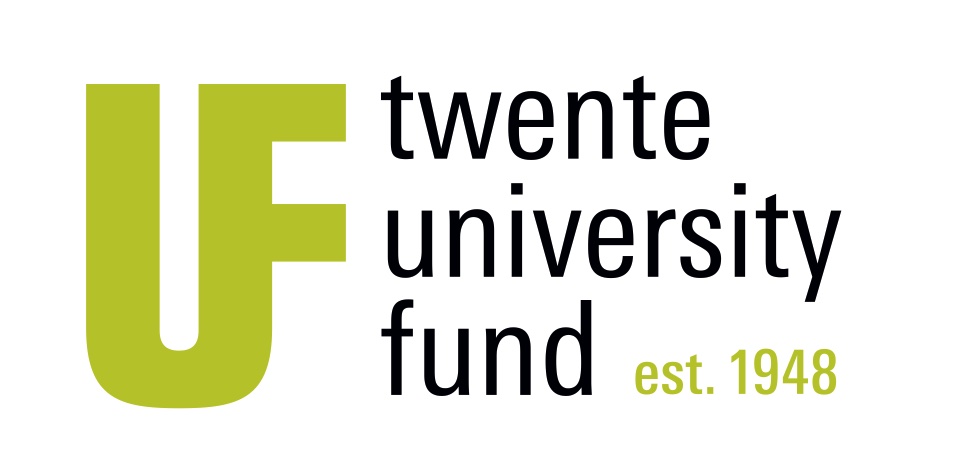
The full-day CHI NL Community Event 2025 will take place at the University of Twente on Thursday, April 10, 2025.

We are happy to invite you to the: CHI NL Community Event 2025!
CHI NL is bringing the local HCI community together once again—this time at the University of Twente on Thursday, April 10, 2025!
As CHI 2025 approaches, before heading to the big stage, we are happy to invite you to a full-day smaller-scale event. Expect inspiring keynotes, engaging paper presentations, and networking opportunities in a relaxed and welcoming setting. We encourage both accepted and rejected submissions for CHI and other SIGCHI conferences. The goal is to provide an opportunity for researchers to present their work, receive feedback, exchange insights, and strengthen connections with fellow HCI enthusiasts.
We look forward to seeing all our fellow HCI researchers from around the Netherlands for this cosy—gezellig—gathering! We are currently working on developing the program. Stay tuned for updates, we will share more information with you soon!
Registration for the event is free for all.
Practical information
The CHI NL Community Event will take place in the Design Lab, Learn-X, at the University of Twente.
Please register below to alert us of your attendance. Registration closes either when we reach 75 registrations or on 4 April 2025 AOE.
Call for submission
Many researchers will have submitted papers to the ACM CHI Conference on Human Factors in Computing Systems or other SIGCHI conferences. We welcome both accepted and rejected submissions from CHI and other SIGCHI events. Our sessions will provide authors with opportunities to practice their presentations or receive feedback for resubmission. Additionally, we invite HCI research groups to submit a poster showcasing their team and activities for the CHI NL community day. These posters help foster connections among attendees with shared research interests. The paper submission deadline has passed (21 March 2025, AOE). The poster submissions can be done till 4 April 2025, AOE.
Program
| 09:30-10:00 | Arrival, registration, meet and greet |
| 10:00-10:15 | Opening by Armağan Karahanoğlu |
| 10:15-11:00 | Keynote I – Steven Houben chaired by Armağan Karahanoğlu |
| 11:00-11:30 | Coffee break w/posters (free for all registrars) |
| 11:30-12:30 | Session I chaired by Funda Yıldırım |
| 11:30-11:42 | Garoa Gomez-Beldarrain: Why does Automation Adoption in Organizations Remain a Fallacy?: Scrutinizing Practitioners’ Imaginaries in an International Airport |
| 11:42-11:54 | Di Yan: Reciportrait: A Data Humanism Approach for Collaborative Sensemaking of Personal Data |
| 11:54-12:06 | Marit Bentvelzen: Unhealthy Comparisons to Promote Healthy Behavior? Exploring the Impact of Social Comparison Strategies in Personal Informatics. |
| 12:06-12:18 | Merel van den Berg: Facilitators and Barriers of Wearable Stress Management Technology: A Narrative Review of User Perspectives |
| 12:18-12:30 | Katja Rogers: An Umbrella Review of Reporting Quality in CHI Systematic Reviews: Guiding Questions and Best Practices for HCI |
| 12:30-13:30 | Lunch (free for all registrars) w/posters |
| 13:30-14:15 | Keynote II – Kathrin Gerling chaired by Dennis Reidsma |
| 14:15-15:00 | Session II chaired by Max Friehls |
| 14:15-14:27 | Jiaxin Xu: Does Care Lead to Bonds? Exploring the Relationship Between Human Caregiving for Robots and Human-Robot Bonding |
| 14:27-14:39 | Simone Ooms: Haptic Biosignals Affect Proxemics Toward Virtual Reality Agents |
| 14:39-14:51 | Ugur Genc: Persuasion in Pixels and Prose: The Effects of Emotional Language and Visuals in Agent Conversations on Decision-Making |
| 14:51-15:30 | Coffee break w/posters (free for all registrars) |
| 15:30-16:20 | Session III chaired by Aslı Günay |
| 15:30-15:42 | Gaole He: Plan-Then-Execute: An Empirical Study of User Trust and Team Performance When Using LLM Agents As A Daily Assistant. |
| 15:42-15:54 | Sterre van Arum: Selective Trust: Understanding Human-AI Partnerships in Personal Health Decision-Making Process |
| 15:54-16:06 | Anne Arzberger: Reflexive Data Curation: Opportunities and Challenges for Embracing Uncertainty in Human-AI Collaboration |
| 16:06-16:18 | Céline Offerman : (Re)discovering Sexual Pleasure after Cancer: Understanding the Design Space |
| 16:18-16:30 | Closing words |
| 16:30-18:00 | Borrel (free for all registrars) |
Keynote speakers

Prof. Dr. Kathrin Gerling (Karlsruhe Institute of Technology)
Title: Equitable Access to Virtual Reality: The Case for Experience
Abstract: Virtual Reality holds the promise of allowing users to immerse themselves in virtual worlds, but at the same time, the technology places demands on human bodies that result in access barriers for disabled people. In my talk, I will explore the state of VR accessibility through the lens of physical, digital, and experiential accessibility, and I will close with reflections on how to move toward equitable VR experiences for all of us.
Bio: Kathrin Gerling is a Professor of Human-Computer Interaction and Accessibility at Karlsruhe Institute of Technology (KIT), Germany, and head of the research group Human-Computer Interaction and Accessibility. Central to the research of her group is the question of how interactive technology can be designed to support human self-determination, and how we can achieve experiential accessibility: accessibility that strives for equitable experiences and seeks to provide engaging user experiences. Her work has been recognized through multiple awards, including Best Paper Awards at leading venues in HCI such as CHI, and an ERC Starting Grant. She is a member of the steering committee of CHI PLAY, and she is part of the editorial board of PACM HCI.

Assoc. Prof. Dr. Steven Houben (TU Eindhoven)
Title: From Human-Data Interaction to Human-Centred AI
Abstract: The rapid surge in data generation is transforming personal, social, and professional domains. With advancements in AI, our interaction with information is evolving. Human-Data Interaction (HDI) introduces novel, tangible approaches to engaging with data beyond traditional visualization, leading to situated data objects or physicalisations—where abstract datasets become interactive, human-centred experiences. This keynote explores HDI’s evolution, its impact on participatory and interpretable data engagement, and its future role in AI-powered tools. Based on HDI principles, I will outline how tangible and physical AI interfaces can enhance human creativity, decision-making, and collaboration, fostering a more intuitive and meaningful approach to data interaction in the AI era.
Bio: Dr. Steven Houben (https://www.stevenhouben.be/) is an Associate Professor in Human-Data Interaction at the Department of Industrial Design and the Artificial Intelligence Systems Institute (EAISI). He is the director of the Data Interaction Lab and leads a research group focused on advancing human-data and human-AI interaction. Dr. Houben holds a PhD in Ubiquitous Computing from the IT University of Copenhagen and completed a postdoctoral fellowship in Physical Computing at University College London Interaction Centre (UCLIC). Before his current role, he was Assistant Professor in Interactive Systems at Lancaster University. His research explores Human-Computer Interaction (HCI) and Physical Computing, investigating new principles, technologies, and interaction techniques for collaborative computing and human-data/AI interaction.
His work centres on two key areas:
(1) Collaborative Augmented Device Ecologies – Developing AI-enabled, intelligent device ecosystems that foster new forms of collaboration and nomadic work
(2) New Forms of Human-Data or AI Interaction – Exploring tangible and physical interaction paradigms, including data embodiments (physicalization), to enhance engagement with AI-driven systems.
Dr. Houben was recently awarded an NWO VIDI personal grant to investigate fundamental principles and interaction mechanisms of curation-centric human-AI collaboration.
Event Organisation team
- Dr. Armağan Karahanoğlu
- Dr. Robby van Delden
- Dr. Geke Ludden
- Dr. Dirk Heylen
- Dr. Dennis Reidsma
- Dr. Aslı Günay
- Dr. Max Friehs
- Dr. Andrea Papenmeier
- Dr. Funda Yildirim
- Dr. Nikita Sharma
- Carmen Heuvelmans
- Ezgi Çakır
- Merel van den Berg
- Naomi van Stralen
- Dulaj Perera
- Gido Hakvoort, Hogeschool Windesheim, CHI NL (Treasurer)
Location
Enschede is located at the German border with the Netherlands and, therefore, it is easily reached by train, with a bus going to the UT science park every 15 minutes. UT Science Park is a 20-minute walk distance from the UT campus.
Useful links
Location of the event: https://www.utwente.nl/en/designlab/about-designLab/contact/
Overnight stays:
- U Park hotel, De Veldmaat 8, 7522 NM ENSCHEDE (UT Campus)
- Fletcher Hotel-Restaurant De Broeierd, Hengelosestraat 725, 7521 PA ENSCHEDE (Close to the UT Campus)
- Intercity Hotel Enschede, Willem Wilminkplein 5, 7511 PG Enschede (City Center)
- Van der Valk hotel Enschede, Zuiderval 140, 7543EZ ENSCHEDE (City Center)
Sponsors:


